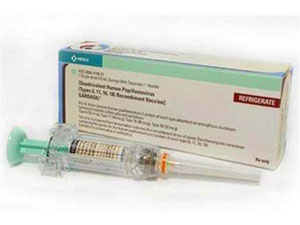-Staff Writer-

WASHINGTON (FinalCall.com) – As school is starting in the nation’s capital, it’s also time to make sure children are vaccinated. For the first time girls entering six grade are required to receive a shot to protect them from HPV, human papillomavirus.
However, more and more are questioning whether this drug is any good in the face of deaths and side effects.
Judicial Watch announced June 22 that it had obtained records from the Food and Drug Administration documenting 28 deaths in 2008 associated with Gardasil, the vaccination for human papillomavirus–up from 19 deaths in 2007.
The total number of Gardasil-related deaths is 47 since the vaccine was approved in 2006. Overall, the FDA documented 6,723 “adverse events” related to Gardasil in 2008, of which 1,061 were considered “serious,” and 142 considered “life threatening,” according to Judicial Watch.
The Journal of the American Medical Association Aug. 19 issue featured an editorial on the “Risks and Benefits of HPV Vaccination.” Dr. Charlotte Huag wrotes, “The theory behind the vaccine is sound: If HPV infection can be prevented, cancer will not occur. But in practice the issue is more complex. First, there are more than 100 different types of HPV and at least 15 of them are oncogenic. The current vaccines target only two oncogenic strains: HPV-16 and HPV-18.”
“Second, the relationship between infection at a young age and development of cancer 20 to 40 years later is not known. … The virus does not appear to be very harmful because almost all HPV infections are cleared by the immune system.”
According to the Centers for Disease Control and Prevention, HPV infects approximately 20 million people in the United States with 6.2 million new cases each year.It is the most prevalent sexually transmitted disease. There is no treatment for HPV, only treatment for related health problems.
Cervical cancer is the second leading cancer killer of women worldwide.In the United States, nearly 10,000 women are diagnosed with cervical cancer each year and 3,700 women die.
This number is much smaller than in other countries largelybecause of thePapanicolaou (Pap) test, a screening tool for cervical cancer. The American Cancer Society reports that, with early detection, cervical cancer isusually treatable.
In 2007 Councilman David Catania, head of the Health Committee pushed the D.C. City Council to mandate that girls under 13 years of age get the HPV vaccine before entering school.
“D.C. has the highest rate of cervical cancer in the United States and it is more than 60 percent higher than the national average. Ninety-two percent of invasive cervical cancer diagnoses are among minority women,” he said at the time.
D.C. joins other states around the country including Texas, Virginia and New York that mandate the vaccine. It was supposed to start in 2008 in D.C. schools but uproar from the community pushed the start date back to 2009.
“This is a real scandal,” said Pete Tucker of the Parent and Citizens Committee to Stop the Medical Experimentation in D.C. “Parents should be given information that they can opt out of this but they aren’t. I was at a clinic this weekend and girls going to the ninth and tenth grade were also given the shot.”
“They were told they had to get the shot and were not told of the risks,” he told The Final Call. “This is the most expensive vaccine ever recommended by the FDA. Each girl needs three shots at a cost of $120 per shot. That’s $360 per girl. This is about business for Merck. The same company that produced Vioxx which killed tens of thousands now claims to have a cure for cancer.”
Dr. Huag had other concerns about the vaccine. She wrotes, “In a few women, infection persists and some women may develop precancerous cervical lesions and eventually cervical cancer. It is currently impossible to predict in which women this will occur and why.
“Likewise, it is impossible to predict exactly what effect vaccination of young girls and women will have on the incidence of cervical cancer 20 to 40 years from now. The true effect of the vaccine can be determined only through clinical trials and long-term follow-up.”
She added, “So how should a parent, physician, politician, or anyone else decide whether it is a good thing to give young girls a vaccine that partly prevents infection caused by a sexually transmitted disease (HPV infection), an infection that in a few cases will cause cancer 20 to 40 years from now?”
Dr. Safiyya Shabazz, a family practice specialist in Philadelphia, offered candid advice, “The answer to this is that young girls should stop having sex. Any kind of medical intervention or vaccine has a risk. HPV is very pervasive. Young girls are more susceptible because of their cervix. We have to get at the root cause and not just try to put a band-aid on this. Women are not getting cervical cancer like that because they are getting pap smears. The vaccine is not the cure, the answer is not to have sex outside of marriage.”












